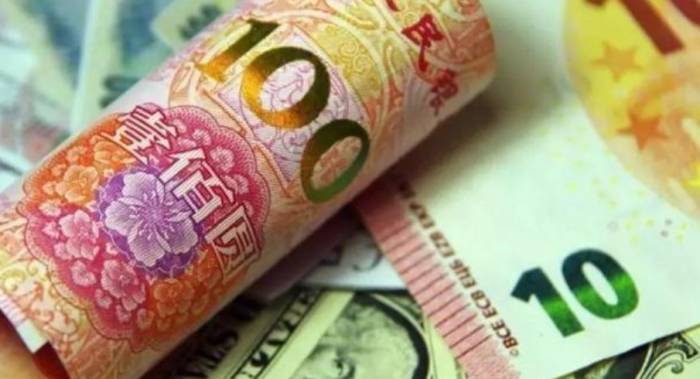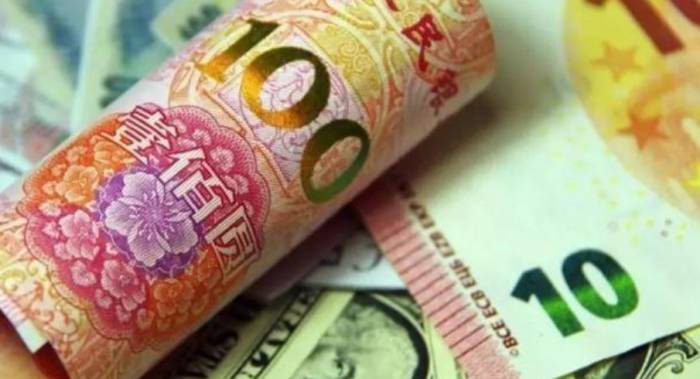① Global Bond Market Faces Sell-off, U.S. Treasury Yields Continue to Rise
The Federal Reserve's path to interest rate cuts may slow down, leading to a global bond market sell-off. On Tuesday, the yield on Australia's 10-year government bonds rose by 15 basis points, while New Zealand's 10-year bond yields increased by 7 basis points. Japan's 10-year government bond yield also rose by 3 basis points to reach 0.985%, a two-month high. Emerging market bonds resumed their downward trend, with Indonesia's 5-year government bond yield rising by 6 basis points. Following a surge of 11 basis points on Monday, which dampened market sentiment, the 10-year U.S. Treasury yield continued to rise on Tuesday, increasing by 2.4 basis points to 4.206%, with a peak of 4.222%. The 2-year Treasury yield climbed to 4.04%. Analysts believe that the core reason for the global bond sell-off is the change in investors' expectations of Federal Reserve rate cuts—strong U.S. economic performance and cautious comments from Federal Reserve officials have complicated the outlook for bond trading. Expectations are rising that the Federal Reserve will slow the pace of rate cuts, with overnight index swaps indicating uncertainty over whether the Federal Reserve will cut rates by 25 basis points in November. BlackRock expects U.S. inflation and interest rates to remain high in the medium term. Institutions like Apollo Global Management expect the Federal Reserve to possibly keep interest rates unchanged at the next meeting. T. Rowe Price, a major asset manager, believes that due to the potential for smaller rate cuts and improved U.S. economic growth performance, the U.S. 10-year yield may rise to 5% next year. However, analysts do not believe that the sell-off in the global bond market will continue to intensify—the Federal Reserve and the Reserve Bank of New Zealand, among others, are still in a rate-cutting cycle, which should provide some support for bonds.
The sell-off in the global bond market reflects investors' adjustments to expectations of Federal Reserve rate cuts and a reassessment of the resilience of the U.S. economy and inflation prospects. Despite concerns about economic growth and policy changes, the market generally expects major central banks to maintain accommodative policies, which could provide some support for the bond market. However, as the global economic and political environment continues to change, bond market volatility may persist, and investors need to closely monitor economic data and policy trends.
Monthly economic and financial data affect the pace of Federal Reserve rate cuts, causing fluctuations in fixed-income investment products, but the overall trend remains unchanged.
② Deutsche Bank Insists Chinese Stock Market is in a Reversal, Not Just a Rebound, Forecasts Hang Seng Index to Reach New Highs
Deutsche Bank believes that the Chinese stock market is currently decoupling from GDP, and economic growth is no longer the only factor driving the rise of the Chinese stock market. Chinese households still have a substantial cash reserve of $6.5 trillion waiting to be unleashed, combined with recent low valuations, this rebound is not just a short-term short-covering but a change in trend. Based on these three major logics, Deutsche Bank is optimistic about the prospects of the Chinese stock market. Deutsche Bank predicts that with the inflow of global funds and the recovery of investor confidence, the Hang Seng Index is expected to usher in a strong bull market, and may even break through 33,000 points in this rebound, setting a historical high. Deutsche Bank also emphasizes that the current global capital holdings in the Chinese stock market are still low, and the low holding rate of the Chinese market gives it great growth potential. Deutsche Bank points out that the outflow of U.S. capital also helps the Hang Seng Index to continue its upward trend. Currently, the market value of the U.S. market is 2.3 times its GDP, the second-highest level in history. Deutsche Bank predicts that the highly concentrated state of the U.S. market will gradually change, and capital will flow to other regions, especially Asia. This will bring new development opportunities for the Hong Kong market.
Whether the Chinese stock market is a rebound or a reversal ultimately depends on the fundamentals of performance and return levels.
I am cautiously optimistic about Deutsche Bank's analysis. The three major supporting logics proposed by Deutsche Bank do make sense, but they also need to be viewed dialectically. First, the decoupling of GDP and stock market trends is indeed a global trend, but the improvement of China's economic fundamentals is still an important cornerstone for the long-term positive direction of the stock market. Second, the $6.5 trillion in household savings is indeed a potential benefit, but the transformation of savings into investment requires the recovery of investor confidence and the support of corporate fundamentals. Most noteworthy is Deutsche Bank's bold prediction that the Hang Seng Index will break through 33,000 points, but stock index growth requires extremely strong capital drive. Although high valuations in the U.S. stock market may drive a reconfiguration of global funds, this process will not happen overnight. Lastly, the logic of U.S. capital outflow to Asia exists, but not all will flow to the Chinese market, as the economic growth and market freedom in Southeast Asia and other regions also have certain attractions. However, I believe that the current valuations of A-shares and Hang Seng stocks are indeed at historical lows and have good investment value. With continuous policy efforts and the gradual recovery of market confidence, it is highly likely that foreign capital will redeploy in the Chinese market. In summary, my view is that the current market is in a cautiously optimistic and steady environment, rather than a one-sided bull market where "new highs" can be easily claimed.
③ Microsoft Launches 10 New AI Autonomous Agents Covering Sales and Finance
Microsoft announced on Monday the introduction of ten new autonomous agents in Dynamics 365, aimed at helping enterprise employees better accomplish tasks in sales, customer support, finance, and other areas. These tools can understand how to work on their own without human instruction and can improve the work efficiency of various teams in the company through existing work data. They can help you deal with IT issues, assist new employees in getting familiar with their work, provide personalized help for sales and service personnel, and even automate the management of your supply chain. These AI applications can be customized through Copilot Studio and are expected to begin public testing next month. Users can easily create autonomous agents in Copilot Studio with low-code or no-code instructions. Users only need to set the goals of the agent, such as organizing email requests. Users can tell the autonomous agent how to handle emails in natural language (without coding), such as what information to extract from emails and how to handle missing data, and the agent can automatically complete the task. At the same time, users can also attach different files and documents to explain how to handle customer data, and then let the agent start working. Microsoft said these tools are an upgraded version of the generative AI Copilot. Microsoft stated that 60% of the Fortune 500 companies are currently using Copilot's tools to help improve work efficiency. Microsoft CEO Nadella said that Copilot is now the user interface for all AI users, and its interaction is as simple as creating an Excel spreadsheet. He also said that in the AI era, the new unit of measurement has become "the number of tokens per dollar per watt"; OpenAI's o1 model is optimizing AI development, and they are using AI to build AI tools to build better AI.Microsoft has demonstrated its in-depth exploration in enhancing enterprise efficiency and optimizing business processes by launching new AI tools. The autonomy and customization capabilities of these tools not only alleviate the burden of repetitive tasks on employees but also save costs and time for businesses. Despite facing market competition and investors' expectations for returns on AI investments, Microsoft's initiatives reflect its leadership position in the AI field and its forward-thinking approach to future work methods. As AI technology continues to advance, Microsoft needs to innovate continuously to maintain its competitiveness in the market and meet the evolving needs of its customers.
Qian Qimin, Executive General Manager of Shenwan Hongyuan Securities Research Institute: Microsoft's new AI products will promote industrial upgrading and will also intensify competition in cutting-edge technology.
④ Maersk raises profit guidance for the fourth time in six months, while also increasing global trade guidance
The Red Sea crisis triggered by the geopolitical situation in the Middle East continues to give Maersk a boost. Maersk preliminarily estimates that its third-quarter performance has exceeded expectations across the board, with revenue of $15.8 billion, an increase of over 30% year-on-year; EBITDA profit of $4.8 billion, an increase of more than 152%. At the same time, the company raised its profit guidance for the full year for the fourth time in less than six months. Among them, this year's EBITDA guidance range was raised by as much as 22% to $11 billion to $11.5 billion, while analysts expected $10.14 billion; the full-year free cash flow is at least $3 billion, 50% higher than the previous expectation. Maersk also updated its guidance related to global trade, reflecting that shipping demand is also stronger than the company's previous expectations. As a container transportation giant controlling about one-sixth of the global container trade share, Maersk currently estimates that global container trade will grow by 6% in 2024, while the company previously expected growth of 4%-6%.
Maersk's performance highlights the profound impact of geopolitical events on the global supply chain, especially under the tense situation in the Red Sea region. Although these events have brought uncertainty to global trade, on the one hand, they have caused freight rates to rise, and on the other hand, they have led to increased demand, thus bringing unexpected profits to shipping companies. Maersk's raised profit expectations and stock performance reflect the market's confidence in its performance, while also implying the company's expectations for future market conditions. However, this kind of performance growth relying on geopolitical tensions may not be sustainable, so it is necessary to pay attention to the long-term impact on the global economy.
Maersk's performance increase boosts stock prices, and investment ultimately depends on the fundamentals.
⑤ News says that a large number of Samsung Electronics employees are considering job-hopping
Reports say that against the backdrop of Samsung Electronics' Device Solutions (DS) division, which is responsible for semiconductor business, facing two major crises of weak competitiveness in advanced process technology and slow delivery of HBM memory to major customers, a large number of DS division employees are considering job-hopping to competitors SK Hynix or South Korean government research institutions. It is revealed that SK Hynix recently posted a job advertisement to hire three experienced etching engineers, and received applications from most of the employees within Samsung Electronics who met this condition, totaling nearly 200. The Korean Institute of Electronics Technology previously recruited employees for its semiconductor packaging research center, and all 8 new employees came from Samsung Electronics; recently released 3 semiconductor research positions attracted 50 doctoral-level Samsung employees to apply. A former Samsung semiconductor employee revealed that Samsung Electronics used to have a leading salary level in the industry, but now the situation is that it is only slightly higher than competitors with performance bonuses; and due to business dilemmas, many Samsung internal employees are gathering information for the possibility of job-hopping.
Samsung Electronics' challenges in advanced process technology and product delivery have not only affected its business performance but also triggered talent loss. This phenomenon highlights the intensity of competition within the semiconductor industry and the importance of talent to corporate competitiveness. To maintain its market position, Samsung Electronics needs to adopt more effective strategies in technological innovation and talent training, while also paying attention to employees' career development and satisfaction to reduce the negative impact of talent loss on the company.
Qian Qimin, Executive General Manager of Shenwan Hongyuan Securities Research Institute: Personnel loss will have a significant impact on Samsung's new business research and development expansion.European Car Sales See Rare Consecutive Monthly Decline, with Hybrid Market Share Surpassing Gasoline Vehicles for the First Time in September
Data released by the European Automobile Manufacturers' Association (ACEA) on Tuesday showed that European car sales in September fell by 6.1% year-on-year due to continued stagnation in major markets such as Germany, France, and Italy. However, hybrid vehicles sold in the European Union accounted for 32.8% of total new car sales in September, surpassing the market share of gasoline-powered vehicles for the first time. Sales of pure electric vehicles (EVs) increased by 9.8% year-on-year in September, but sales for the year-to-date have decreased by 5.8%. Hybrid vehicle sales grew by 12.5% year-on-year, while gasoline car sales dropped by 17.9%, with a market share of 29.8%. In recent months, the sales of hybrid electric vehicles (HEVs) have increased in the EU, as buyers view them as an affordable compromise between fuel vehicles and full electric vehicles. This year, the sales of full electric vehicles and plug-in hybrid electric vehicles (PHEVs) have slowed down, partly due to disagreements among European countries on green incentive policies, while regulatory authorities impose high tariffs in an attempt to keep Chinese electric vehicles out.
The consecutive decline in the European car market reflects the impact of slowing economic growth and declining consumer confidence in the region. Although electric vehicle sales have rebounded in some countries, the overall market is still suppressed by high interest rates and inflation. However, with potential policy changes and economic stimulus measures, the electric vehicle market may regain growth in the coming years, especially against the backdrop of European governments promoting zero-carbon emission targets. Despite the challenges faced by the market in the short term, the long-term growth potential of electric vehicles remains enormous.
New energy vehicles are beginning to encroach on the market share of traditional vehicles in Europe.





























